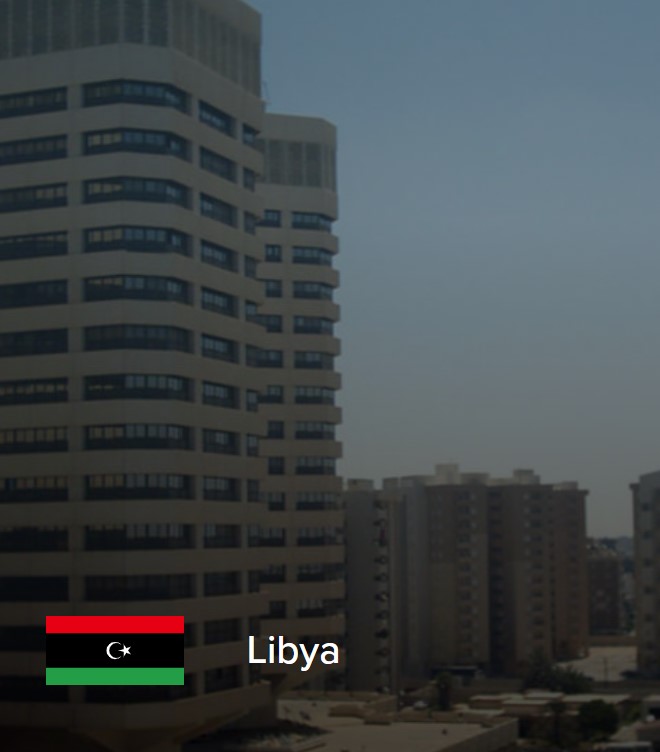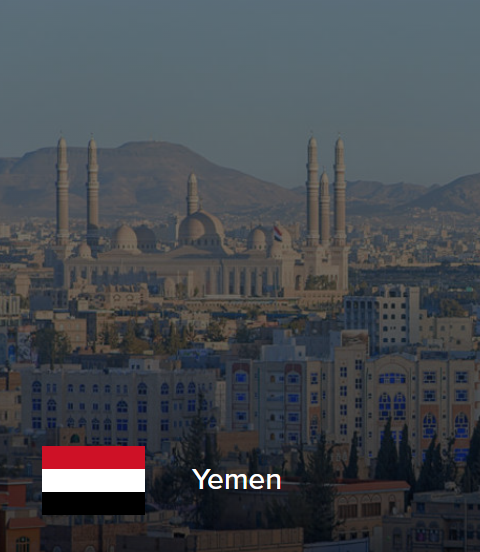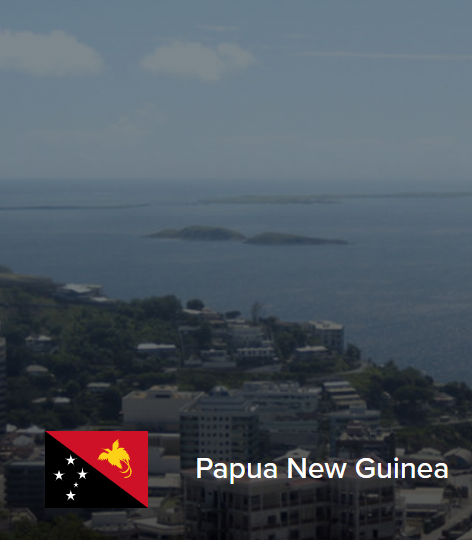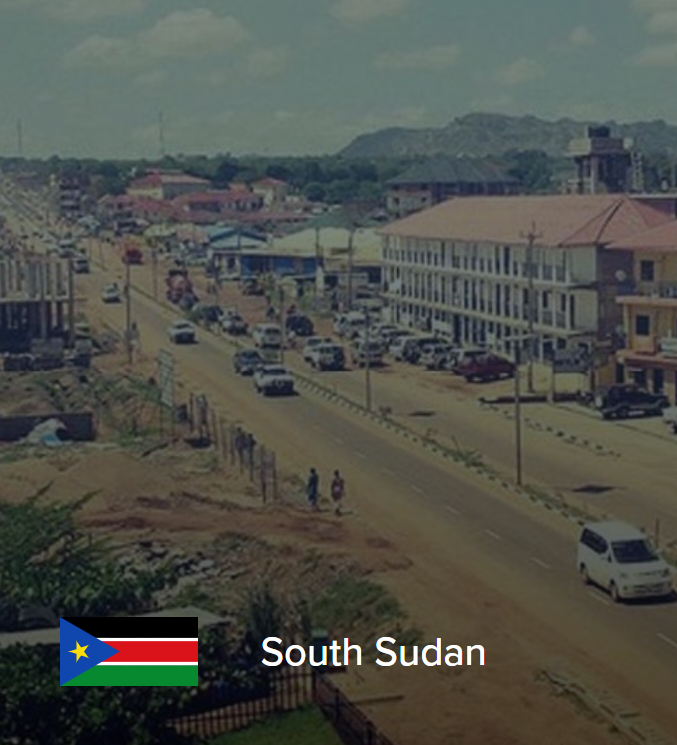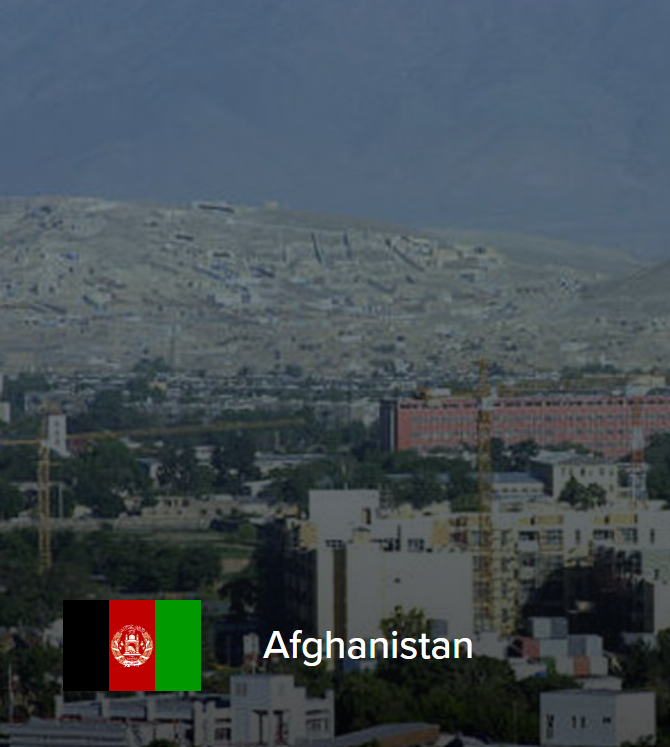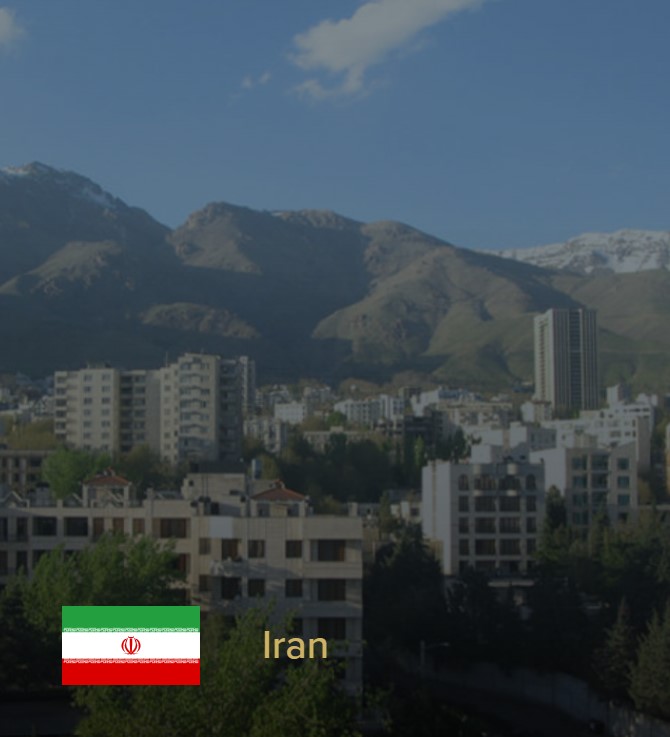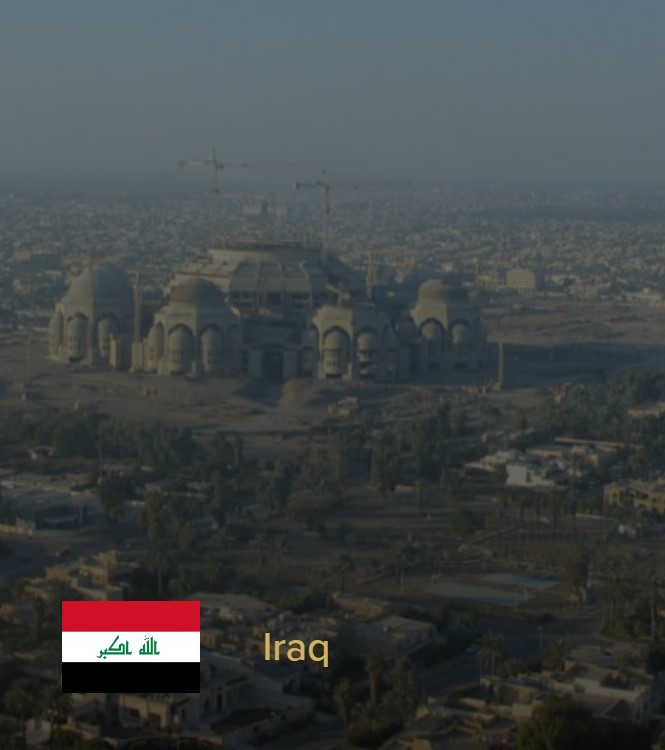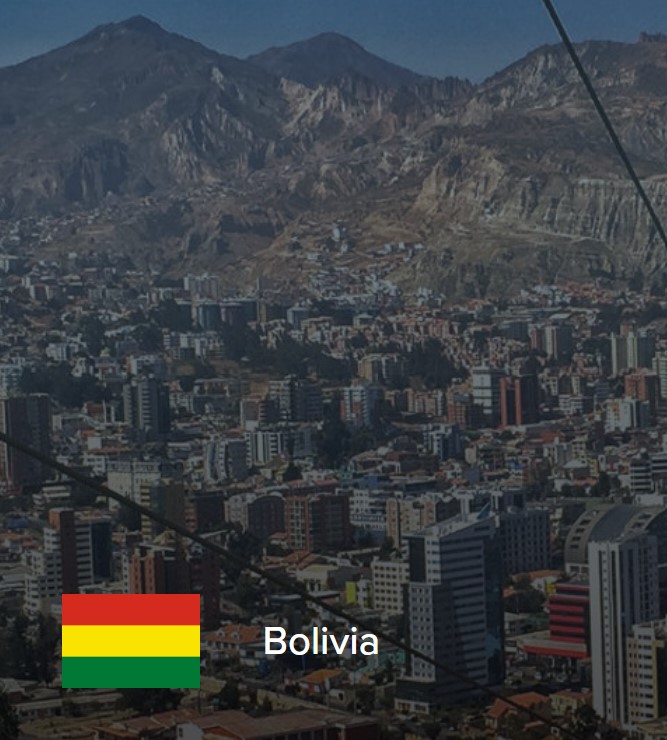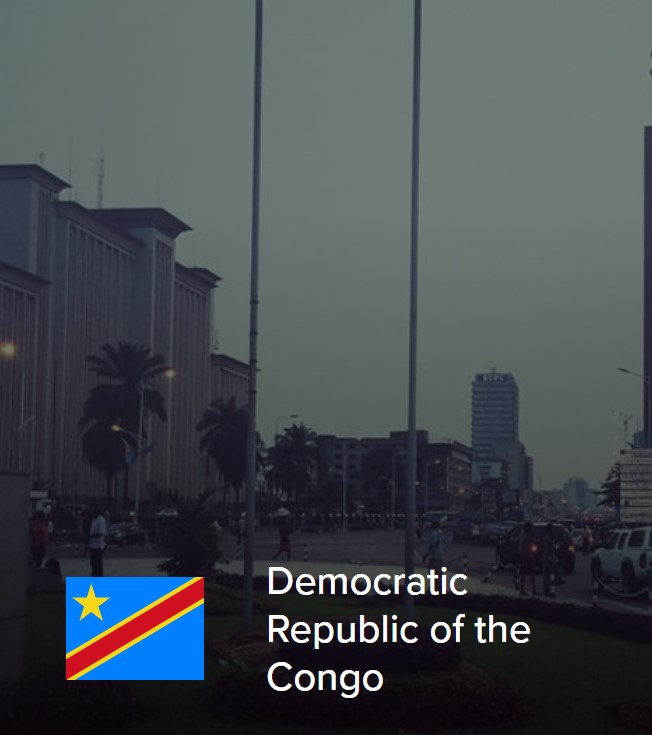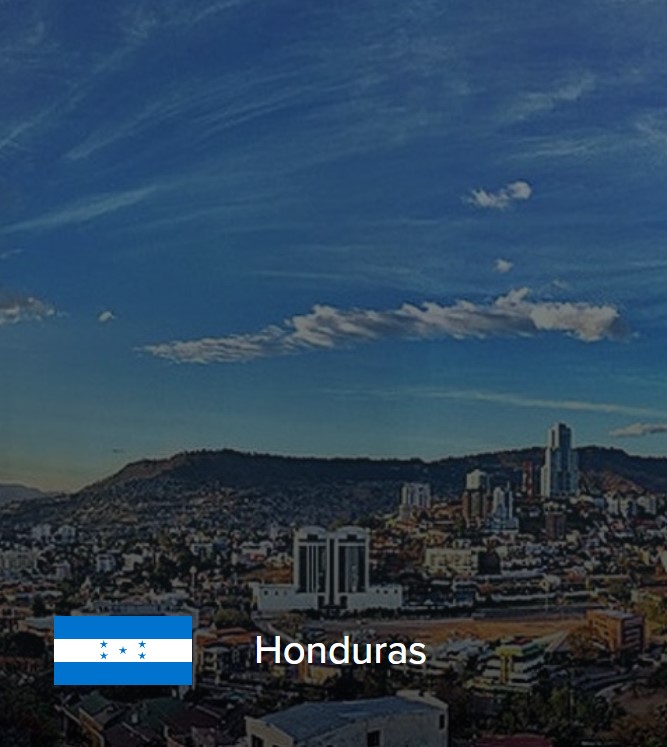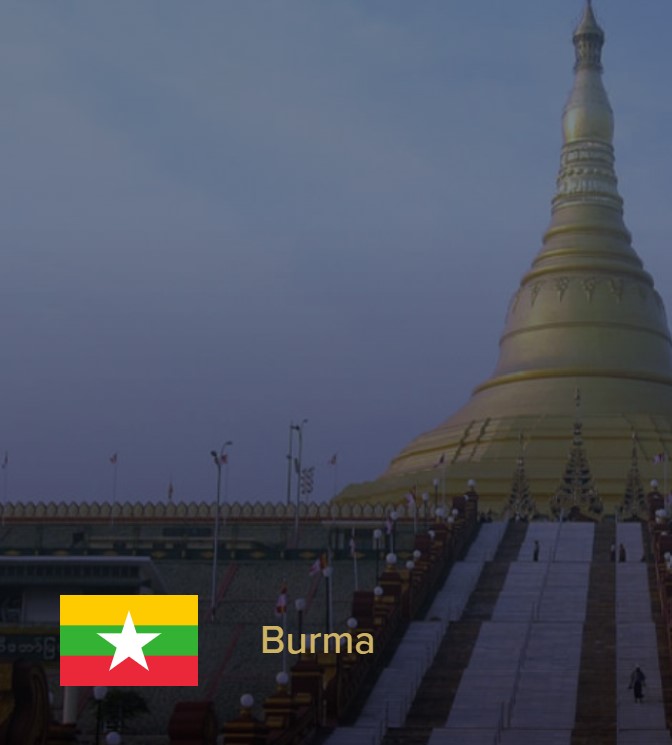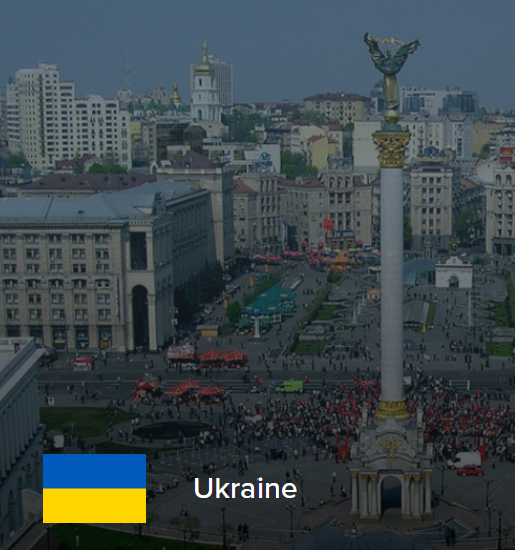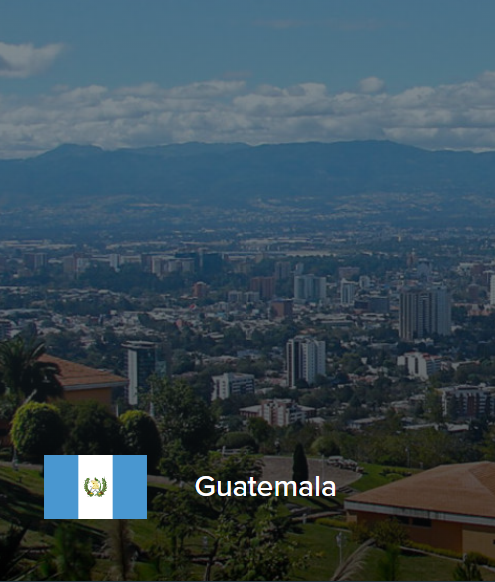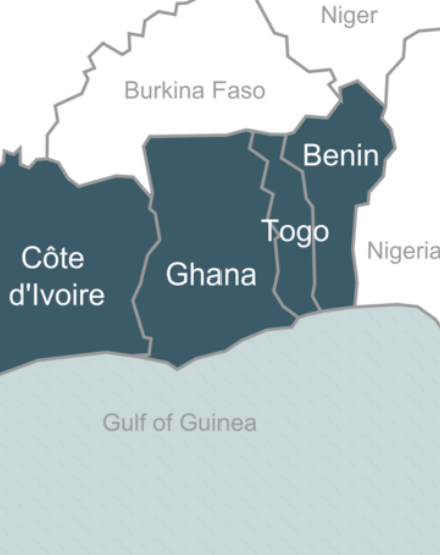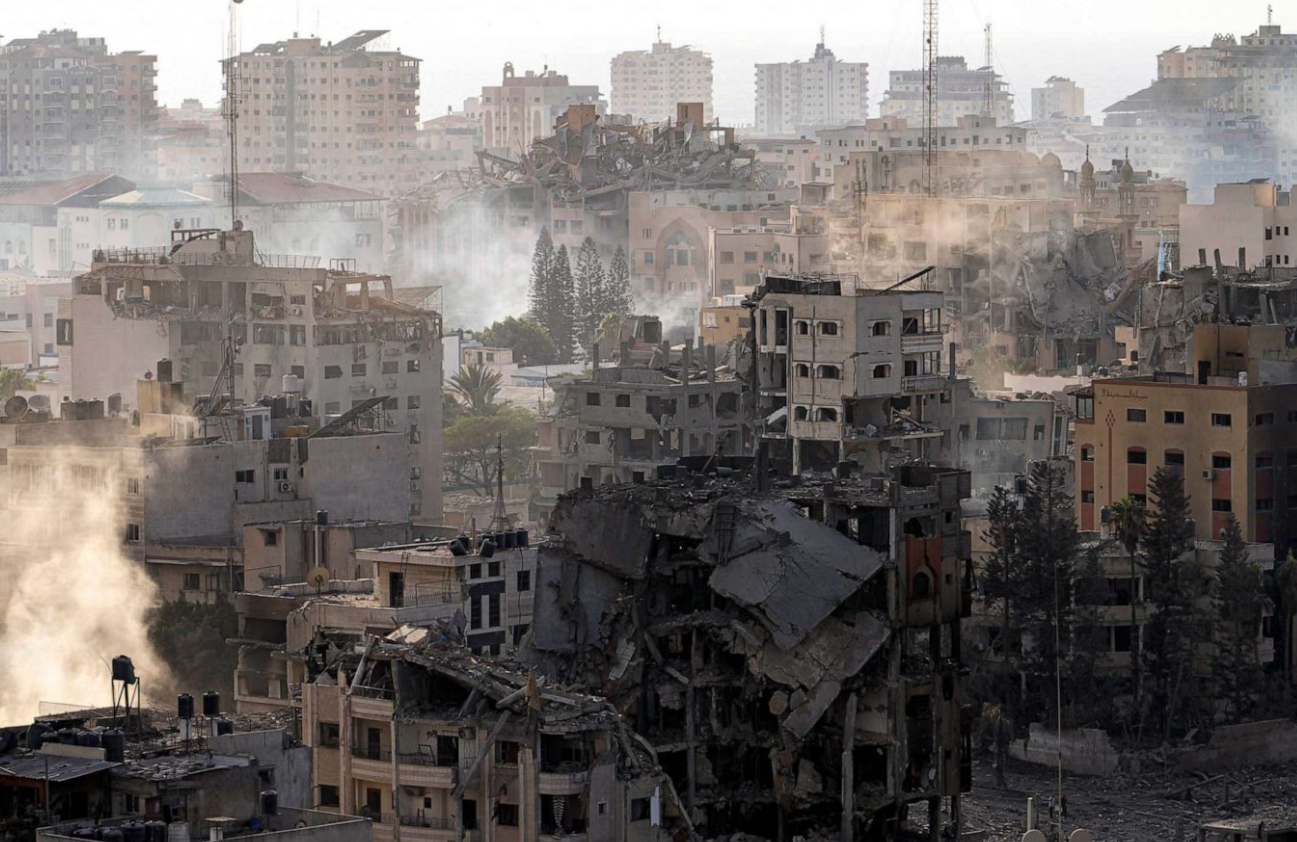
Tracking Conflict Worldwide
The Center for Preventive Action (CPA) aims to help international Communities and policymakers devise timely and practical strategies to prevent and mitigate armed conflict around the world, especially in places where Middle East, North Africa & African interests are most at risk. Geopolitical friction among the major powers is intensifying, creating serious risks of armed conflict, while the effects of climate change and other threats to international peace and security are evolving in new and destabilizing ways. CPA's work is focused on trying to anticipate destablisations and conflicts.
Rival authorities remained at loggerheads on new unified executive and elections. Heads of rival assemblies, Aghela Saleh of eastern-based House of Representatives (HoR), and Mohamed Takala of Tripoli-based High State Council (HSC), around 8 Nov met in Egypt but failed to reach breakthrough; Saleh continued to back HoR-approved election laws and called for formation of interim unity govt, while Takala insisted that his assembly did not approve final version of laws and allegedly refused to back new govt formation. Taking stock of impasse, UN envoy Abdoulaye Bathily 23 Nov invited key stakeholders – Presidential Council, HoR, HSC, Tripoli-based govt and Libyan National Army – to attend meeting to reach settlement on outstanding issues pertaining to electoral process. Eastern-based govt of Osama Hamad immediately denounced its exclusion from UN-led talks, said Bathily has “entrenched division among Libyans” and called on UN Sec Gen António Guterres to “appoint a new UN envoy”..
Saudi-Houthi dialogue appeared to gather steam, while Houthi rebels launched attack in Marib governorate, fortified presence in southwest and attacked Israeli and U.S. targets in Red Sea.
Houthis continued to take aim at Israeli and U.S. targets. Houthis 6, 9, 13, 14 Nov claimed drone and ballistic missile attacks on Israeli targets. Group 8 Nov shot down U.S. drone. Houthi leader Abdulmalik al-Houthi 14 Nov vowed to continue attacks on Israel and Israeli ships in Red Sea. U.S. officials 15 Nov reported intercepting drone originating in Yemen in Red Sea. Houthis 19 Nov hijacked ship in Red Sea partially owned by Israeli businessperson and declared all Israel-linked vessels “legitimate target”. U.S. officials said two ballistic missiles were launched 27 Nov from Houthi-controlled areas towards general location of U.S. warship in Red Sea. U.S. Navy 29 Nov shot down drone launched from Houthi-controlled area.
Authorities set Feb 2024 election date, deadly attacks continued in Afghan border provinces, and govt faced international rebuke for forcibly deporting hundreds of thousands of Afghans.
Militant attacks and military operations continued, primarily in Afghan border provinces. In one of most lethal attacks in recent months, Baloch militants 3 Nov killed fourteen soldiers in Balochistan province’s Gwadar district. In Khyber Pakhtunkhwa province, bomb blast targeting police and military 3 Nov killed five civilians and soldier in Dera Ismail district, while militants 6 Nov killed two police constables. During military operation in Khyber district, militants 6 Nov killed four soldiers, including Lieutenant Colonel. In Punjab province, affiliate of Tehreek-e-Taliban Pakistan (TTP) 4 Nov assaulted Pakistan Air Force training base in Mianwali district, leaving all nine attackers dead.
Govt continued forcible deportation of Afghans en masse. Govt had reportedly forced more hundreds of thousands of Afghan nationals to Afghanistan (see Afghanistan). In attempt to justify policy, caretaker PM Anwaar-ul-Haq Kakar blamed “illegal immigrants” for “spreading insecurity” and cited Taliban’s failure to take action against “anti-Pakistan terrorists”. International rights group Amnesty International 10 Nov condemned Pakistan’s use of Afghan refugees as “political pawn” and UN human rights chief 16 Nov expressed concern over reports of “ill-treatment, arbitrary arrests and detention, destruction of property and personnel belongings and extortion”.
Armed individuals broke former military ruler out of prison, sparking military purges and suggesting that President Doumbouya faces opposition from within armed forces.
Breakout led to purges in military, pointing to divisions within regime. Govt 5 Nov announced removal of over 60 soldiers, gendarmes, and prison officials suspected of involvement in prison breakout; also announced legal proceedings against some for abandonment of post and violation of orders. Breakout reportedly featured fighting between Special Forces, formerly led by interim President Col. Doumbouya, and Autonomous Battalion of Airborne Troops (BATA), of which Col. Pivi was once a member; both units reportedly also clashed in September 2021 during Doumbouya’s coup against Condé. Doumbouya 14 Nov sacked four senior military officers, next day appointed new head of BATA.
In other important developments. Justice Minister Charles Wright 20 Nov announced investigation into Condé for treason; Condé 22 Nov said Wright had “lost his bearings” due to Pivi’s escape.
Ever-worsening gang violence displaced thousands, Kenya’s supreme court blocked police deployment to Haiti, and negotiations to resolve political crisis failed to produce breakthrough.
Gang efforts to expand territory triggered mass displacement. Alleged members of Grand Ravine gang 1 Nov launched offensive in Mariani district south-west of capital Port-au-Prince to expand territory along National Route 2 and increase extortion opportunities; International Organization for Migration 6 Nov estimated 2,500 people were displaced in five days of fighting. Meanwhile, Iskar Andrice, one of G9 gang coalition’s founders and key leaders, 12 Nov died in unclear circumstances; leader of rival Gpèp coalition Ti Gabriel next day launched attacks in several G9-controlled areas of capital’s Cité Soleil neighbourhood to expand turf; OCHA 17 Nov said clashes killed at least 166 and displaced over 1,000. Iskar’s successor David Ganier aka Black Alex Mana, 21 Nov killed by member of same coalition, James Edmond aka Benji, replacing him as gang head. Bel-Air gang 19 Nov launched offensive to invade Solino neighbourhood of capital.
Hostilities between Twic Dinka from Warrap state and Ngok Dinka from disputed Abyei area escalated, leaving scores dead amid retaliatory violence and reported army involvement.
President Kiir reconstituted key electoral institutions. As 2024 elections inched closer, President Kiir 3 Nov reconstituted National Election Commission (NEC), Political Parties Council and National Constitution Review Commission. Failure to appoint single opposition candidate to NEC leadership, which will play crucial role in conduct of polls, prompted Sudan People’s Liberation Movement-In Opposition (SPLM-IO) to reject its composition.
South Sudan deployed first Necessary Unified Forces (NUF). After four-year delay, South Sudan 15 Nov deployed first 750 NUF members as stipulated in peace agreement. Deployment sparked controversy as most troops selected are former members of South Sudan People’s Defence Forces, army of governing party; troops were also deployed to Tonga town (Upper Nile state), where hostilities between SPLM-IO and govt-allied Agwalek militia reignited late Oct, raising fears NUF could intervene against SPLA-IO.
In another important development. Security forces 10 Nov increased presence in capital Juba during President Kiir’s trip to Saudi Arabia, triggering rumours of coup attempt; army leadership dismissed Inspector General of National Police Services. President Kiir 27 Nov reshuffled cabinet, replacing Warrap state governor and three national ministers.
Qatar-brokered truce won pause in Israel’s war in Gaza amid humanitarian crisis, but efforts to extend deal may falter and see return to onslaught; West Bank violence escalated amid hostilities with Hizbollah.
First respite in Israel’s pummelling of Gaza, which killed over 15,000. Israel and Hamas 22 Nov agreed to Qatar-mediated four-day truce beginning 24 Nov that was extended until 30 Nov, pausing hostilities in Gaza to exchange over 100 women and children captured by Hamas with 240 Palestinian women and children detained in Israel; truce held but Israeli forces 24, 26 Nov reportedly killed three Palestinians in Gaza trying to move north. Ahead of pause, Israel escalated bombing campaign and broadened ground incursion, bringing Palestinian death toll to over 15,000, including 6,150 children, with at least 75 Israeli soldiers killed. Despite announcing “safe corridors” for civilians to leave north, Israel bombed evacuation routes and so-called “safe areas” in south, and 15-16 Nov dropped leaflets on eastern Khan Younis calling for evacuation ahead of potential operations that could commence after truce in Gaza’s south. In north, health infrastructure collapsed amid shortages and Israeli assault on hospitals; malnutrition and dehydration killed at least dozen, as UN warned disease could kill more than bombardment. Israel 15-24 Nov conducted ground operations inside al-Shifa hospital in Gaza city, making unverified claims that it contains Hamas command centre.
Tensions mounted between Taliban and Pakistan as Islamabad forcibly deported hundreds of thousands of Afghans, while Islamic State’s local branch targeted ethnic minority Hazara community.
Tensions continued to rise with Pakistan amid Afghan exodus. Relations between Kabul and Islamabad continued to face strains as pair traded public criticism and Pakistan forcibly deported hundreds of thousands – and perhaps soon millions – of Afghans to Afghanistan ahead of harsh winter months, which could overwhelm Taliban authorities ill-prepared for massive influx amid one of the world’s largest humanitarian crises and as country reels from devastating earthquakes, economic challenges and sanctions. Some of those forced by Pakistan to cross border fled Taliban rule after group’s takeover in August 2021 and could risk Taliban reprisals (see Pakistan). After Pakistan’s caretaker PM stated that relations will improve when “a legitimate government is established in Kabul”, Taliban 17 Nov responded that ties will improve when “there is wise leadership in Pakistan”. Taliban-affiliated media during month continued to imply that Pakistan is supporting anti-Taliban armed groups inside Afghanistan.
Islamic State targeted ethnic minority Hazaras. Reeling from losses inflicted by security forces in recent months, Islamic State Khorsan Province (ISKP) maintained low-level activity, opting to target unarmed Hazara civilians whom group sees as soft target. Notably, ISKP 7 Nov targeted van in the Hazara enclave of Dasht-e Barchi in western neighbourhoods of Kabul, killing at least seven and wounding over dozen. Taliban intelligence forces 6 Nov reportedly targeted ISKP cell in Suki district, Kunar province (east).
Taliban convened high-level meeting to address economy and Pakistan ties. Taliban’s Emir 19 Nov held meeting with de facto cabinet in Kandahar city, which appeared to be primarily concerned with economic direction of govt as well as deteriorating relations with Pakistan; although exact details are unknown, such meetings are significant as key govt policies are often decided.
Hostilities between Iran-backed groups and U.S. forces across region underscored risk of escalation amid Israel’s onslaught in Gaza, while UN’s nuclear watchdog voiced concern over Tehran’s nuclear activities.
Tit-for-tat attacks between Iran-backed groups and U.S. continued across region. String of attacks since mid-Oct attributed to Iran-linked factions against U.S. forces in Iraq and Syria continued during Nov amid Israel’s onslaught in Gaza (see Israel-Palestine), further eroding relative quiet stemming from informal diplomatic understandings between Tehran and Washington; as of 29 Nov, U.S. tallied approximately 74 incidents and around five dozen casualties, though pace of attacks fell as Gaza truce took effect late Nov. Notably, U.S. 8 and 12 Nov launched retaliatory airstrikes in eastern Syria against facilities allegedly linked to Islamic Revolutionary Guards Corps (IRGC) (see Syria), and 20-21 Nov launched first deadly retaliatory strikes on Iran-backed targets in Iraq (see Iraq). FM Hossein Amir-Abdollahian 15 Nov maintained perpetrators were making “own decisions”; attacks seem intended to dissuade Israel from deepening campaign in Gaza and to signal to Washington risks of association with Israel but any attack claiming significant casualties could trigger escalatory spiral. Meanwhile, Iranian officials sought to push for Israel’s diplomatic isolation, including during President Raisi’s attendance at summits 11 Nov (see Saudi Arabia).
Concerns over Iran’s uranium enrichment resurged. International Atomic Energy Agency’s (IAEA) quarterly report 15 Nov showed further growth of Iran’s enriched uranium stockpiles and continued impasse over safeguards concerns and transparency; Iran has amassed total enriched uranium stockpile of almost 4.5 tonnes, including 6.7kg enriched to 60%, closest to weapons grade. IAEA at 22 Nov board meeting reiterated criticism of Iran’s 16 Sept decision to bar top inspectors and reported no progress in investigations into past activities at undeclared sites.
U.S. sanctioned Iran-affiliated militias and military financial networks. Washington and UK 14 Nov blacklisted Gaza- and Lebanon-based entities linked to Palestinian Islamic Jihad and Hamas. U.S. 17 Nov sanctioned six individuals linked to Kata’ib Hizbollah militia in Iraq and another group linked to IRGC. U.S. 29 Nov designated more than twenty persons/entities part of “financial facilitation networks” benefitting Iranian military.
U.S. launched first deadly strikes on Iran-backed militias after facing dozens of attacks since Israel-Hamas war; Supreme Court removed Parliament Speaker amid forgery scandal.
U.S. forces struck Iran-backed militias in first airstrikes since Israel-Hamas war. U.S. as of 29 Nov tallied around 74 attacks against its forces in Iraq and Syria since 17 Oct – of which approximately half occurred in Iraq – that injured around 60 personnel. Notably, two drone attacks 9 Nov targeted Ain al-Asad airbase, Anbar governorate, and al-Harir airbase, Erbil governorate. IED same day struck U.S.-led coalition convoy near Mosul Dam. Two drones 20 Nov targeted Harir air base in Erbil. Close-range ballistic missile 20 Nov struck Ain al-Asad airbase, injuring eight, which prompted U.S. to use airborne gunship to respond, killing at least one alleged militant of Kata’ib Hizbollah – associated with Iran-backed umbrella group Islamic Resistance in Iraq. In further escalation, U.S. 21 Nov carried out second series of airstrikes, killing eight Kata’ib Hizbollah members in Jurf al-Sakhar area; group vowed retaliation. While pace of attacks on U.S. declined as Gaza truce took effect late Nov (see Israel-Palestine), further attacks claiming significant casualties could trigger escalatory spiral toward wider conflict.
Federal Supreme Court suspended Parliament Speaker. Supreme Court 14 Nov terminated Parliament Speaker Mohammed al-Halbousi’s tenure following accusations that he forged resignation letter of MP from Halbousi’s Taqqadum party, Layth al-Dulaimi, who was also suspended; Sunni parties are expected to appoint new speaker before Dec provincial elections. In response, Taqqadum party same day announced resignation of three govt ministers and boycott of parliament; PM Sudani 20 Nov rejected resignations. In separate case, Halbousi faces investigation for alleged relations with company tied to former Israeli PM Ehud Barak, illegal under anti-normalisation law.
In other important developments. Islamic State (ISIS) bomb and gun attack 30 Nov killed eleven civilians in Muqdadiyah city, Diyala province. Türkiye 13 and 17 Nov claimed operations killed total nineteen PKK members and its intelligence services 17 and 20 Nov reportedly eliminated senior PKK members; PKK attack 26 Nov killed three Turkish soldiers. Unknown gunmen 20 Nov reportedly attacked office of Kurdish politician Shakhawan Abdullah in Kirkuk city
Military faced largest battlefield challenges since Feb 2021 coup as ethnic armed groups conducted attacks on multiple fronts; regime may step up brutal response, including indiscriminate bombings, in coming weeks.
Ethnic armed groups and resistance forces made major gains in north. After Three Brotherhood Alliance – comprising the three ethnic armed groups active in northern Shan State: Myanmar National Democratic Alliance Army (MNDAA), Ta’ang National Liberation Army (TNLA) and Arakan Army (AA) – and allied resistance groups 27 Oct launched “Operation 1027”, in Nov their forces seized over 130 outposts from regime, inflicted casualties (including Brigadier-General) and major materiel losses on military, captured string of towns in China border area, and destroyed or secured important bridges and blocked major highways, constituting significant strategic, economic and psychological blows to military. Military responded with airstrikes and artillery, which failed to counter operation but caused civilian casualties and displaced some 82,000 in Shan state and 335,000 nationwide (bringing total number of civilians displaced since coup to over 2m). In sign of possibly greater inter-ethnic tensions to come, Shan State Progress Party 7 Nov clashed with TNLA in Muse Township, killing several.
Other groups took advantage on several fronts, threatening to overstretch military. In early Nov, one of largest ethnic armed groups – Kachin Independence Organisation (KIO) – led assault together with people’s defence forces on north-western Kawlin town in Sagaing Region, which fell after several days of fighting. Additionally, resistance forces in Kayah State 11 Nov commenced “Operation 1111”, assaulting state capital Loikaw; they claimed to have shot down air force jet. Even more significantly, AA 13 Nov started series of attacks in Rakhine State, ending period of calm that followed informal ceasefire in Nov 2022. In western Myanmar, Chin forces 13 Nov attacked Rikhawdar town on India-Myanmar border, ultimately seizing it. For first time in decades, military will have to fight numerous, determined and well-armed opponents simultaneously in multiple theatres; it may double down on brutal efforts to reverse tide on battlefield, including scorched-earth tactics and indiscriminate bombing in coming weeks.
Electoral preparations progressed haltingly as opposition discussed coalition. Constitutional Court 18 Nov validated all 26 presidential candidacies for 20 Dec election, and electoral campaign started next day. Six opposition candidates, including heavyweights Martin Fayulu and Denis Mukwege, 24 Nov filed complaint against head of electoral commission, Denis Kadima, and Interior Minister Peter Kazadi, accusing them of manipulating electoral process. EU 29 Nov cancelled election observation mission, citing security and technical reasons. Meanwhile, opposition representatives 13-17 Nov met in South Africa, and three candidates 19-20 Nov withdrew from presidential race to back Moïse Katumbi; neither Fayulu nor Mukwege followed suit.
M23 captured positions in east around North Kivu’s provincial capital Goma. Amid ongoing tensions between Kinshasa and Kigali (see Rwanda), Rwanda-backed M23 rebels continued offensive in North Kivu, with intense fighting in Masisi, Nyiragongo and Rutshuru territories. M23 from late Oct reoccupied most positions they had ceded to East African regional force and repelled army and loyal militias, formerly known as Wazalendo, on Sake-Kitshanga axis and Goma-Rutshuru axis. Notably, M23 14 Nov took control of Kishishe village, Rutshuru territory, 22 Nov captured Mweso city, Masisi territory. Clashes between M23 and army 26 Nov intensified around Kilolirwe village; several thousand households took refuge in Sake town, last stop before Goma. Responding to resurgent M23 threat, UN peacekeeping force (MONUSCO) 3 Nov launched operation with army to reinforce security around Goma; plans for mission’s withdrawal continued unhindered, as MONUSCO and govt 21 Nov agreed on timeline for complete disengagement. East African regional force, whose mandate is set to expire on 8 Dec, largely stayed out of fight. President Tshisekedi 17 Nov signed agreement on Southern African regional force, confirmed deployment “in the coming days”.
ADF continued to wreak havoc in eastern provinces. Islamic State-affiliated Allied Democratic Forces (ADF) rebels 7 Nov killed at least 12 civilians in three localities of Irumu territory, Ituri province; 12 Nov reportedly slaughtered up to 42 people in Watalinga chiefdom, Beni territory, North Kivu.
Appointment of temporary Attorney General fuelled political tensions, and govt extended state of exception for eighth time.
Selection of new Attorney General sparked political crisis. Tensions over selection of new Attorney General spiked after Congressional Permanent Commission, formed of eight pro-govt and one opposition legislator, 1 Nov appointed Johel Zelaya to act as interim chief prosecutor. Move triggered controversy as many deemed commission, appointed by legislative president and ally of President Castro, Luis Redondo, bypassed legislative debate. Opposition criticised appointment as power grab and 11 Nov organised protest in capital Tegucigalpa. Despite promising not to carry out “selective persecution”, Zelaya 9 Nov removed several investigative and former opposition judicial officials. Civil society, private sector and international community condemned irregular naming of Attorney General, with U.S. 7 Nov announcing Honduras would not receive certain funds, citing failure to combat corruption.
Govt extended stringent security measures. Govt 21 Nov announced extension of state of exception until Jan 2024. Police 13 Nov claimed it had arrested 1,895 people, including over 700 from Barrio 18 and MS-13 gangs, since state of exception began Dec 2022. Meanwhile, security minister 8 Nov announced seizure of 48,600 doses of fentanyl hidden in container in Puerto Cortes, Cortes department (north), amid concerns of stepped-up drug production in Honduras.
In other important developments. President of main opposition National Party David Chávez Madison 28 Nov fled arrest after police prevented him from boarding flight to U.S.; same day, judge ordered Chávez’s arrest in fraud case, which Chávez denies.
Govt dismissed hundreds of justice officials amid ongoing crackdown; ties with Russia and China deepened as Managua formally withdrew from Organization of American States (OAS).
Govt dismantled judiciary and continued crackdown on civil society. Govt late Oct dismissed President of Supreme Court and dozens of officials in justice system; by 6 Nov had removed 450 officers from posts, including four Supreme Court magistrates; media report 7 Nov suggested vacancies would be filled by loyalist politicians and former members of security forces. Govt 6 Nov proscribed 25 NGOs, including religious institutions and 27 Nov closed or dissolved fifteen others. Indigenous party YATAMA 13 Nov announced it did not know whereabouts of party leaders seized by security forces late Sept.
Managua strengthened ties with Russia and China, and withdrew from OAS. Commander of armed forces 7 Nov visited Russia to negotiate technical cooperation, reiterated support for Russia’s war against Ukraine. Economic Congressional Committee 14 Nov announced National Assembly would soon ratify Free Trade Agreement with China. Meanwhile, Nicaragua 19 Nov formally withdrew from OAS following two-year process launched in 2021 by Ortega regime in response to condemnation from body about rights violations. Ahead of withdrawal, OAS members 8 Nov approved resolution calling for continued monitoring of rights in country.
Govt dismissed hundreds of justice officials amid ongoing crackdown; ties with Russia and China deepened as Managua formally withdrew from Organization of American States (OAS).
Govt dismantled judiciary and continued crackdown on civil society. Govt late Oct dismissed President of Supreme Court and dozens of officials in justice system; by 6 Nov had removed 450 officers from posts, including four Supreme Court magistrates; media report 7 Nov suggested vacancies would be filled by loyalist politicians and former members of security forces. Govt 6 Nov proscribed 25 NGOs, including religious institutions and 27 Nov closed or dissolved fifteen others. Indigenous party YATAMA 13 Nov announced it did not know whereabouts of party leaders seized by security forces late Sept.
Managua strengthened ties with Russia and China, and withdrew from OAS. Commander of armed forces 7 Nov visited Russia to negotiate technical cooperation, reiterated support for Russia’s war against Ukraine. Economic Congressional Committee 14 Nov announced National Assembly would soon ratify Free Trade Agreement with China. Meanwhile, Nicaragua 19 Nov formally withdrew from OAS following two-year process launched in 2021 by Ortega regime in response to condemnation from body about rights violations. Ahead of withdrawal, OAS members 8 Nov approved resolution calling for continued monitoring of rights in country
Polisario Front independence movement launched rare rocket attacks in Morocco-controlled Western Sahara.
Four explosions overnight 28-29 Oct struck Moroccan-controlled city of Smara; Polisario claimed rocket attacks, said it targeted military infrastructures, but rockets hit residential areas, leaving one civilian dead and three others injured. New round of attacks reported 5 Nov in same area, with no casualties. Moroccan authorities opened investigation into blasts and FM Nasser Bourita 15 Nov said investigation’s outcome will inform Morocco’s response.
Russia intensified attacks in Donetsk region as Ukraine targeted occupied left-bank of Dnipro river, key allies promised more military aid, and European Commission recommended accession talks.
Russian forces made small gains in east and escalated airstrikes. In Donetsk region, Russia stepped up attacks around Bakhmut city and Avdiivka town, making modest gains at high cost. In Odesa region, Russian missile 9 Nov hit freight ship in Odesa port, killing one in first strike on civilian vessel since withdrawal from Black Sea grain deal. Authorities 26 Nov said Russia had conducted one of largest drone attacks since war began, notably targeting capital Kyiv, with over 75 Iranian-made drones injuring five and damaging infrastructure.
Ukraine stepped up attacks across Dnipro river and continued targeting Crimea. Russian military bloggers 6 Nov reported Ukraine had transferred armoured vehicles across Dnipro River into bridgeheads on Russian-held left bank in southern Kherson region. In following days, troops managed to expand bridgeheads and Kyiv 15 Nov claimed foothold; Russia-installed Kherson governor same day admitted Ukrainian gains but promised reversal. In Russian-annexed Crimea, Ukrainian missile 4 Nov damaged under-construction missile carrier in port city of Kerch; Russian officials 26 Nov claimed its air defence averted several Ukrainian drone attacks on occupied Crimea and Moscow.
U.S. and Germany pledged more military assistance. U.S. Defence Secretary Lloyd Austin 20 Nov visited Kyiv, announcing new military aid package and promising continued support, even as worries grew over approval of further spending in U.S. Congress and supply capacity amid Israel-Hamas war (see Israel/Palestine). German Defence Minister Boris Pistorius 21 Nov announced €1.3bn military aid package during Kyiv visit; France 29 Nov announced intention to sign bilateral defence accord with Kyiv in early 2024.
European Commission recommended accession talks, tensions with EU neighbours rose. European Commission 8 Nov recommended accession negotiations with Ukraine; Hungarian PM Orbán 18 Nov said Ukraine was “light-years away” from membership, signalling intent to block proceedings. Meanwhile, Polish lorry drivers 6 Nov began blockade of border crossings, alleging EU suspension of entry permits for Ukrainian truckers had created unfair competition; after traffic diverted to Slovakia, Slovak border guards 15 Nov increased checks.
Judicial attempts to undermine August presidential election result continued to fuel political instability; more moves against President-elect could fuel mass protests and unrest in coming weeks.
Judicial persecution threatened to cause further turmoil. In moves that could spark further unrest, Public Prosecutor’s Office 16 Nov opened investigation into President-elect Arévalo, VP-elect Karin Herrera and four other politicians for allegedly promoting May 2022-June 2023 student protest; judiciary accused them of destruction of cultural property, illicit association and influence peddling, and asked Supreme Court to remove their immunity; fears rose that removal of immunity or arrest of President-elect in December would lead to mass protests. Earlier, Supreme Electoral Court 2 Nov confirmed suspension of Arévalo’s party Movimiento Semilla over alleged anomalies during its creation; original suspension issued in July but only became legal after electoral period ended 31 Oct. Public Prosecutor’s Office 22 Nov levelled same charges against two other politicians. Arévalo and Herrera 16 Nov said charges were “spurious” and an “assault on democracy”. Prosecutor’s office also issued arrest warrants for 27 other individuals for their role in university protest.
Congress appointed Supreme Court judges. Constitutional Court 7 Nov ordered Congress to elect magistrates for Supreme Court of Justice and Court of Appeals before end of Nov, reinvigorating process on pause since 2019. Congress 15 Nov elected thirteen magistrates to Supreme Court of Justice, some of whom have been accused of corruption, triggering protests in capital Guatemala City; 21 Nov appointed Appeal Court magistrates.
Govt forces and allies continued to hunt down rebels in several regions, and authorities dismissed UN mission’s call for national dialogue.
Increased rebel activity prompted military to step up presence in hinterland. Between 100 and 150 govt troops 1 Nov deployed to Bamingui-Bangoran prefecture’s capital Ndélé, after around 120 unidentified armed men late Oct took control of nearby Miamani village, killing one soldier and forcing other soldiers and civilians to flee. In Ouham-Fafa prefecture, Coalition of Patriots for Change (CPC) rebels 2 Nov claimed control of Sido town near Chadian border, with two soldiers and several civilians reportedly killed; military and Russian paramilitary Wagner Group 5 Nov recaptured town, and Wagner plane on search mission in Ouham-Fafa 11 Nov briefly crossed into Chad, prompting N’Djamena to threaten defensive action; CPC 24 Nov once again attacked Sido before leaving next day. After govt and Wagner forces late Oct attacked Central African Patriotic Movement (MPC) armed group and killed about 20 fighters, MPC leader Mahamat Al-Khatim 3 Nov announced leaving CPC and reintegrating 2019 peace agreement with govt.
UN renewed mission’s mandate amid tensions over national dialogue proposal. After UN mission (MINUSCA) late Oct called for new dialogue between govt and both civilian and armed opposition, President Touadéra’s special adviser Fidèle Gouandjika 2 Nov dismissed proposal, claimed it was part of “genocidal plot” hatched by MINUSCA and France to destabilise country. Opposition and armed groups reacted cautiously to MINUSCA’s proposal, with some voicing concern that any such dialogue would legitimise Touadéra-sponsored constitutional referendum held in July. UN Security Council 15 Nov renewed MINUSCA’s mandate for one year until Nov 2024, demonstrating international community’s almost unanimous support for Touadéra despite authoritarian drift.
Intercommunal tensions flared in north west. Muslim trader 8 No
Rival authorities remained at loggerheads on new unified executive and elections. Heads of rival assemblies, Aghela Saleh of eastern-based House of Representatives (HoR), and Mohamed Takala of Tripoli-based High State Council (HSC), around 8 Nov met in Egypt but failed to reach breakthrough; Saleh continued to back HoR-approved election laws and called for formation of interim unity govt, while Takala insisted that his assembly did not approve final version of laws and allegedly refused to back new govt formation. Taking stock of impasse, UN envoy Abdoulaye Bathily 23 Nov invited key stakeholders – Presidential Council, HoR, HSC, Tripoli-based govt and Libyan National Army – to attend meeting to reach settlement on outstanding issues pertaining to electoral process. Eastern-based govt of Osama Hamad immediately denounced its exclusion from UN-led talks, said Bathily has “entrenched division among Libyans” and called on UN Sec Gen António Guterres to “appoint a new UN envoy”..
President Gnassingbé carried out security reshuffle while court sentenced former top military official to prison, signalling potential divisions within military; jihadist threat persisted in north.
Former top military officer convicted amid security reshuffle. Gnassingbé 3 Nov appointed new head of his personal security team and made several changes to leadership of anti-jihadist operation deployed in country’s north, notably appointing new operation commander. Meanwhile, military court 7 Nov sentenced Maj. Gen. Abalo Kadangha, former armed forces chief of staff, to 20 years in prison for complicity in murder of Col. Bitala Madjoulba in May 2020. Trial and conviction came as a shock to many Togolese due to Kadangha’s high military rank and family ties with Gnassingbé; affair could be linked to inter-military rivalries, with murdered Col. Madjoulba being brother of newly appointed Security Minister Calixte Madjoulba.
Jihadist threat persisted along northern border with Burkina Faso. In northern Savanes region, Al-Qaeda-affiliated Group for the Support of Islam and Muslims 11 Nov claimed killing three soldiers and seizing their vehicle and weapons near Dapaong city, Tône prefecture.

